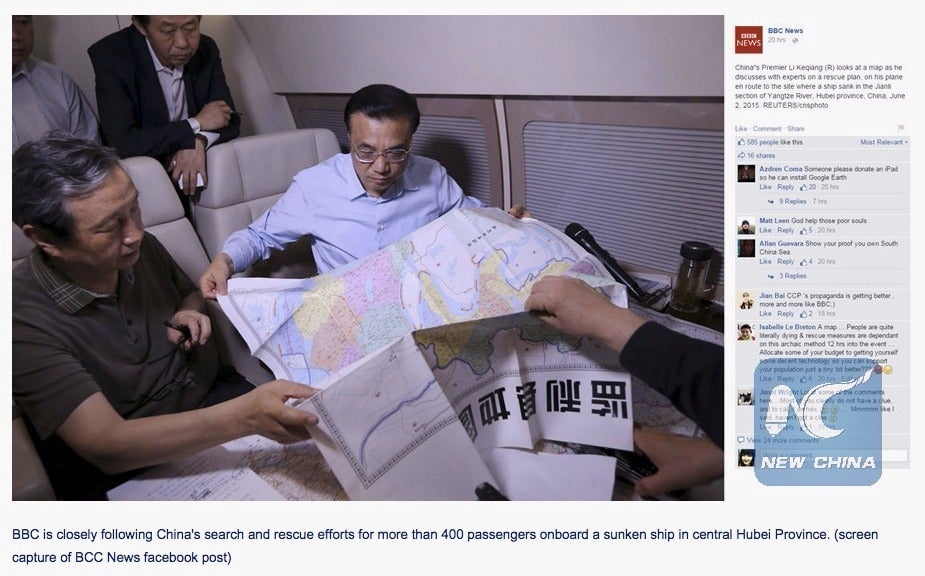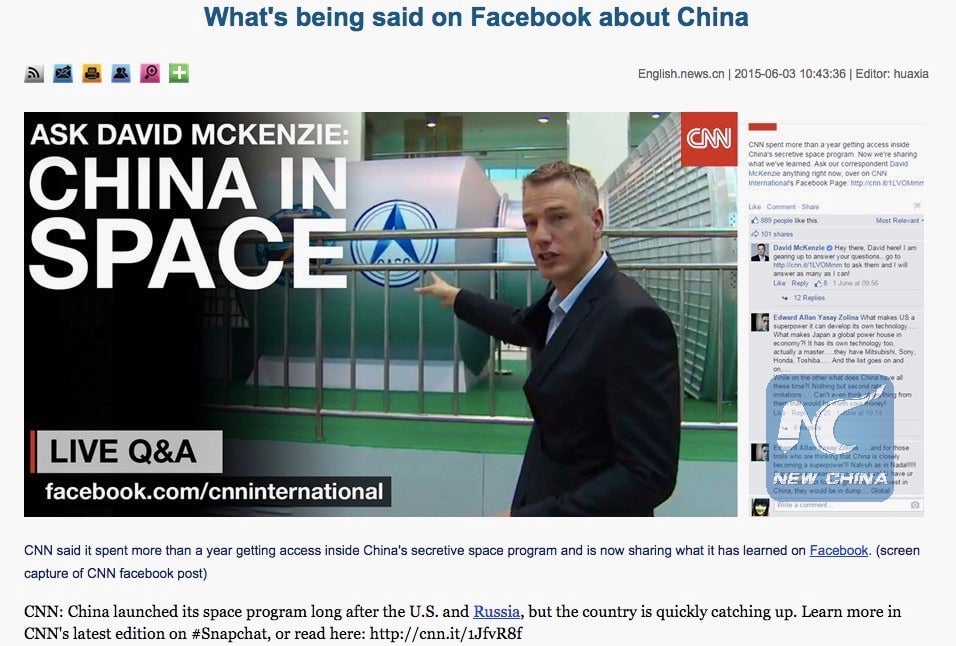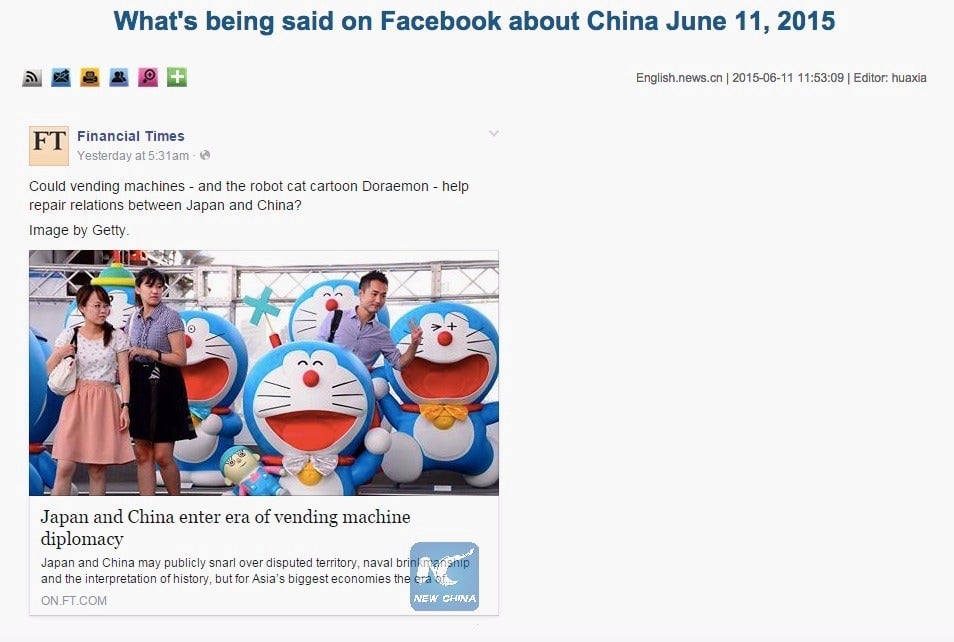The Chinese propaganda machine’s complicated love affair with Facebook and Twitter
Chinese internet users can’t access global social media sites like Facebook and Twitter. But China’s state media has begun to tell them what people are saying about China on these networks anyway.


Chinese internet users can’t access global social media sites like Facebook and Twitter. But China’s state media has begun to tell them what people are saying about China on these networks anyway.
Over the past few weeks, Xinhua’s English website has begun running two bizarre new features called “What’s being said on Facebook about China,” and “What’s being said on Twitter about China.”
The emergence of the features highlights the complicated relationship that China’s highly censored, state-run media has with the world’s biggest social networks. Facebook and Twitter are technically banned in China, but hardly unknown to the country’s 640 million internet users.
In the features, Xinhua English typically provides screenshots of social media posts about China. These posts usually come from high-profile western media like the New York Times (which is blocked in China), the Wall Street Journal (ditto), CNN, or the BBC.
Collectively, these news highlights are usually about as dull as Xinhua’s own pro-China coverage. Posts are cherry-picked to show how foreign media depicts China as a stable nation, with a competent leadership ready to handle its unique challenges. Take, for example, this highlighted post from the BBC.

News about China being big and great often makes the cut, particularly China-is-winning pundit pieces.

The sometimes jokey, provocatively-written headlines and “share text” popular in western media take on different tenor when they’re viewed though the lens of a Chinese propaganda outlet. It is hard not to see the below on “repairing relations” and not imagine a Chinese reader thinking “Whaaaat?”

Xinhua will also cherry-pick user comments from the posts to show readers what’s being said about China. From the Xinhua piece about the above FT article:

Xinhua’s strange new features are just the latest way that Chinese state media is increasingly engaging with social networks that are blocked in China. In fact, verboten social media companies are well-covered, and talked about, inside China, and Chinese media are often avid users.
Business media in China will report on these company’s stock performance (link in Chinese) with the same fervor that US media does. Chinese tech bloggers who follow the booming internet industry will use Facebook, Twitter, and Google (also blocked) as reference points for their commentary.
State media organizations like Xinhua, China Daily, and the People’s Daily even have their own English-language Twitter accounts and Facebook pages, where they advance Beijing’s point of view outside China’s borders. The foreign-seeming followers and commentators on these accounts sometimes are remarkably pro-China, as on a People’s Daily Facebook post about China’s controversial building projects in the South China Sea.

Embracing, and covering, banned social media networks serves several purposes for China’s state media.
Xinhua English, China Daily and other Chinese state news in English are read online by some foreigners, but are probably read by many more more native Chinese—given that an an estimated 300 million Chinese people are learning English. Alexa ranks China Daily’s website, which sometimes gets content from Xinhua, as the 23rd most visited site in China.
The features add a little international flair (and sometimes blocked news headlines) to a publication that’s otherwise filled with the stodgy voice of the state.
But Xinhua’s reports on what people are saying on Facebook and Twitter about China also reinforce Xinhua’s own message—the country is powerful, stable and widely-admired. Rather than pretending Facebook and Twitter don’t exist, Chinese state media has become a savvy, yet unconventional, user.